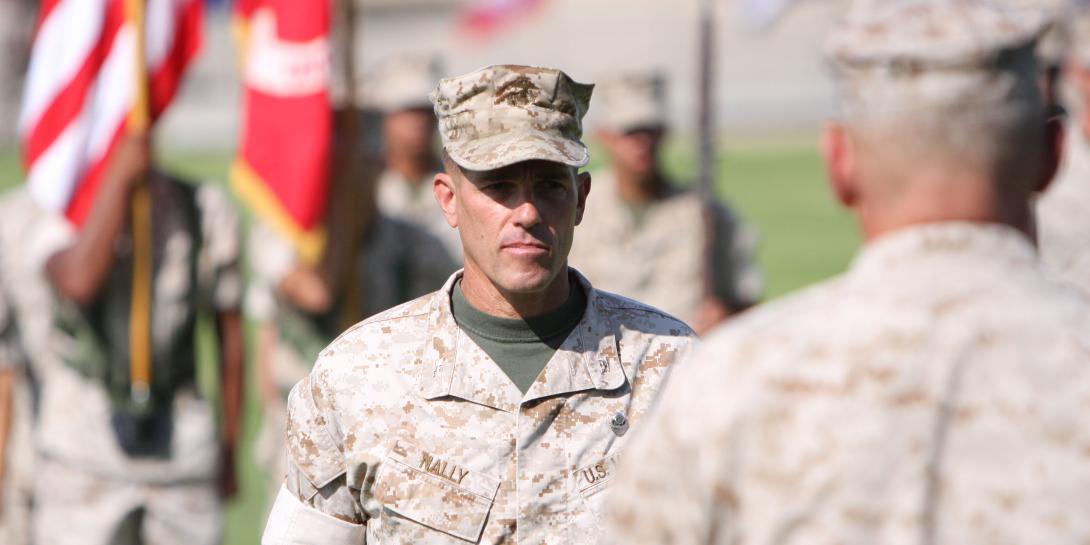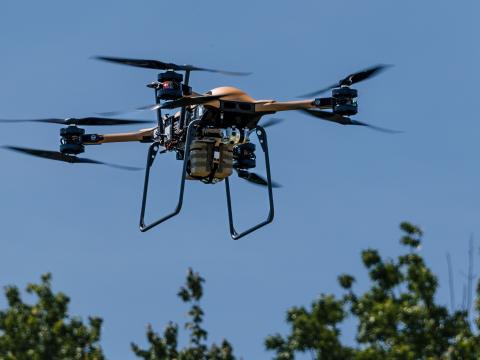After Active Duty: The Importance of Mentorship
The After Active Duty blog series examines the challenges, rewards and lessons learned for those who have transitioned from active duty to the private sector and the role AFCEA played in this progression.
When asked about the highlight of his career, retired Brig. Gen. Kevin Nally, USMC, could have provided a lot of different answers. He could have mentioned being the chief information officer and director of command, control, communications and computers (C4) for the Marine Corps. He could have talked about his current position as chief information officer for the U.S. Secret Service. Or he could have brought up the time he served as deputy director of C4, U.S. Central Command. Having served in combat, he must certainly have war stories to tell. He might have noted any number of awards, including the Defense Superior Service Medal or the Legion of Merit with one gold star. And attending the SCUBA School in Pearl Harbor and serving as a search and rescue diver would certainly be considered a highlight for most people.
But Gen. Nally talked about none of that. The highlight, in his eyes, was mentoring young Marines and “passing on my knowledge and what I’ve learned from others so that they don’t make the same mistakes and have the chance and the resources to succeed.”
Mentoring is an important part of Marine Corps—and military—culture. A Marine Corps Mentoring Guide indicates mentoring is “an effective way to provide professional development and to enhance learning between colleagues at different levels and stages of their career.” It adds that a mentoring program can benefit an organization in a number of ways, including: cost-effective professional and leadership development; opportunity to display and improve leadership abilities; improved recruitment and retention of a talented and diverse workforce; increased organizational communication and understanding; improved succession planning; enhanced employee motivation; and increased management ownership and engagement.
“As a leader it is a must to mentor—and I was mentored as well,” he says.
The lessons most important for young Marines to learn, he says, are to “Listen...and always strive to do the right thing, in the right way, at the right time. Plus, always treat others how you want to be treated—with respect.”
Gen. Nally has had many opportunities throughout his career to share lessons learned with young Marines. He served as a communications platoon commander during Desert Shield and Desert Storm. He also was the executive officer for the 2nd Marine Division and for the 4th Marine Regiment before taking command of a support battalion.
And he directed the Marine Corps Martial Arts program. Gen. Nally says the martial arts provide lessons vital to Marines and others. “To be a true martial artist requires mental discipline, physical discipline, moral discipline and always giving of yourself,” says the judo practitioner. “I always defined success for them as leading a good and moral life.”
For much of his career, the general has found opportunities to mentor and to be mentored at AFCEA events. He joined the organization in the mid-1980s while spending time away from his communications career. “I was in Los Angeles as a recruiter. I was not doing IT communications, so I wanted to stay up to speed as much as I could, just to keep up with current and future IT and who was doing what.”
Gen. Nally has spoken at AFCEA conferences, where he always received rave reviews. He maintains his membership, although he is not able to attend as many events as he did during his military career. Those events also allow attendees to “meet people from various walks of life and from various companies and learn what they have to offer,” he says, adding that he has met both professional acquaintances and life-long friends through AFCEA.
He finds other ways to mentor as well. He has participated in the Big Brother program, coached sports and volunteers at his church.
But he has found fatherhood to be the ultimate mentorship opportunity. “I have a son who is in the Army and in school learning to be a satellite communications operator. I’m very proud of him,” he says.
Join AFCEA now, one of the most cost-effective and efficient ways to help yourself and your career, while having fun and making a difference for many others across the globe.




Comments